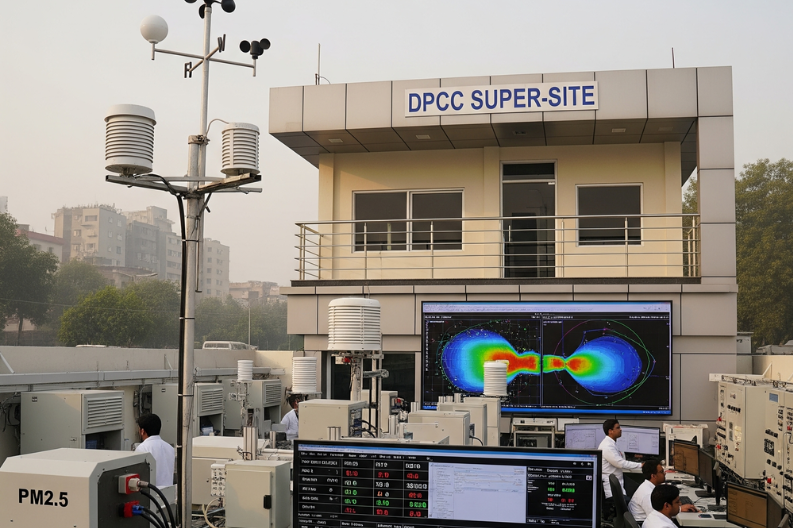DPCC Plans to revive a critical research project to better understand Delhi’s worsening air pollution. The Delhi Pollution Control Committee will restart its “super-site” program with the Indian Institute of Tropical Meteorology (IITM), Pune. This project will track pollution sources in real-time. The move comes nine months after DPCC ended its collaboration with IIT Kanpur, based on guidance from the Central Pollution Control Board (CPCB).
The decision came during a DPCC board meeting on July 18. Members also discussed auditing water use in five-star hotels. Officials want to check how much water these hotels consume and whether they reuse treated water.
The super-site began in 2021 near Rouse Avenue with IIT Kanpur managing it until November 2023. After the partnership ended, advanced equipment like air analyzers and forecasting models remained unused. DPCC, unhappy with IIT Kanpur’s methods, sought a new partner. IITM, with its Decision Support System (DSS) and Early Warning System (EWS), will now provide near real-time data and better forecasts.
Delhi’s fight against pollution has long relied on outdated studies, such as IIT Kanpur’s 2016 report and TERI’s 2018 findings. Without updated data, authorities often act reactively instead of preventing problems. The revived project aims to change that by making real-time monitoring central to decisions.
The DPCC also reviewed the smog tower at Baba Kharak Singh Marg. Built in 2020 under a Supreme Court order, it worked during 2021 and 2022 but shut down in the winter of 2023. CPCB has submitted a pilot study on the tower to the court, and they now await further instructions.
Water audits in luxury hotels remain another focus. Records show that 54% of their water comes from fresh groundwater. A large share of treated water still goes into sewers. To verify this, DPCC will conduct on-site inspections and check whether separate pipelines exist for treated and fresh water.
In conclusion, DPCC Plans highlight a renewed effort to fight Delhi’s pollution with updated data and stronger collaborations. By combining real-time studies, hotel water audits, and advanced forecasting, Delhi can move toward cleaner air and more sustainable urban growth.



